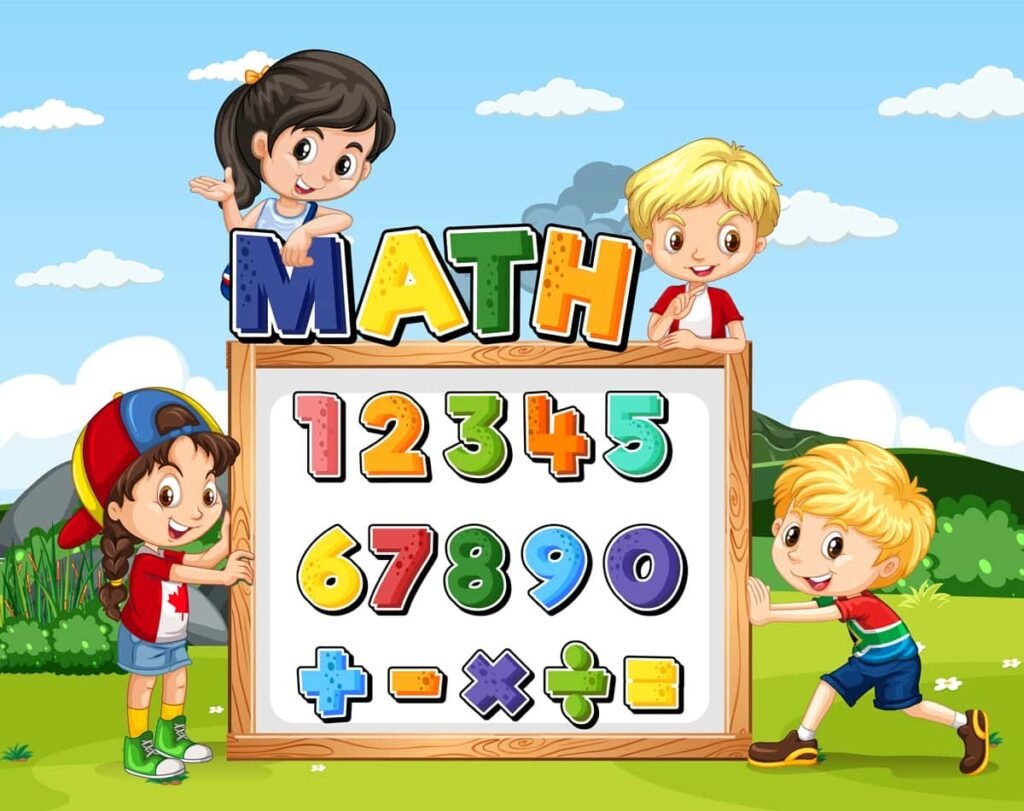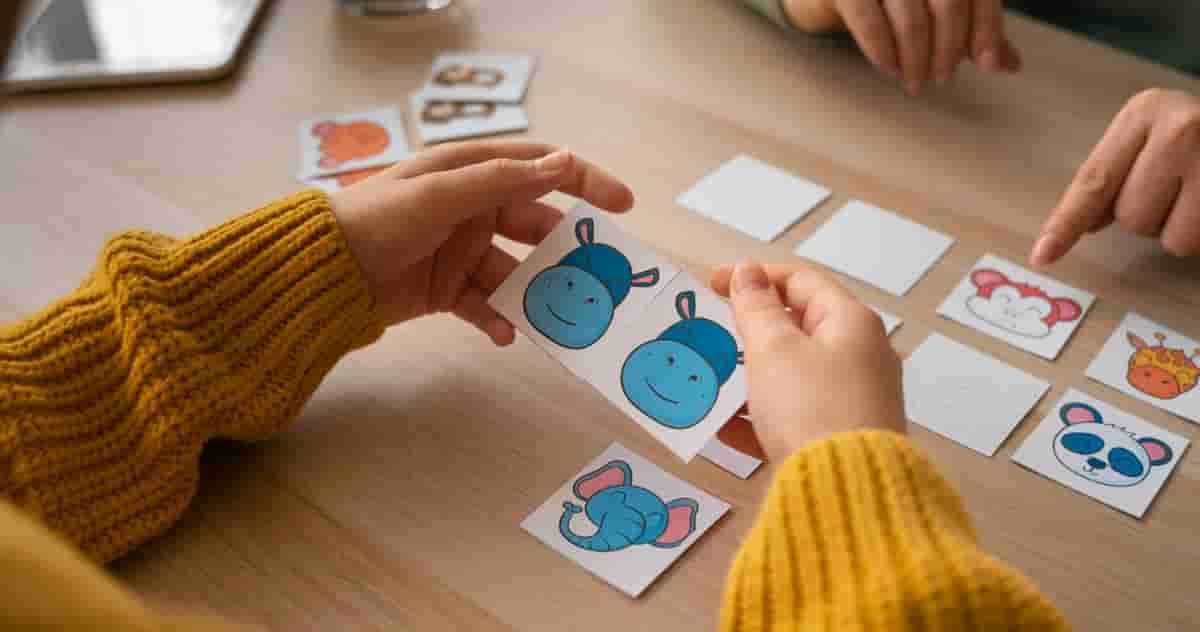Level Up Learning: 17 of the Best Educational Games for Kids
In today’s digital world, captivating children’s attention often means embracing screens. But instead of dreading screen time, why not harness its learning potential? Educational games have become a powerful tool for engaging kids in subjects from math and science to reading and critical thinking. These games offer a fun and interactive way to absorb information, develop problem-solving skills, and ignite a passion for learning.
This list dives into 17 of the best educational games for kids, covering a range of ages, subjects, and platforms. We’ll explore what makes them effective, the skills they foster, and how they can be seamlessly integrated into a child’s learning journey.
Best Educational Games for Kids

Important Considerations Before You Start:
Before diving into the list, remember these crucial factors:
- Age Appropriateness: Always check the recommended age range for each game. A game that is too advanced can be frustrating, while one that is too simple might be boring.
- Educational Value: Don’t be swayed by flashy graphics alone. Look for games that genuinely reinforce learning concepts and skills.
- Gameplay Mechanics: Consider your child’s learning style. Do they prefer strategy games, puzzle games, or creative building games?
- Platform Compatibility: Ensure the game is compatible with your devices (computer, tablet, smartphone).
- Cost: Many games offer free trials or have free versions. Explore these before committing to a paid subscription.
- Parental Controls: Implement parental controls to manage screen time and ensure a safe online environment.
- Balance is Key: Educational games are a supplement, not a replacement, for traditional learning methods. Encourage a balanced approach that includes reading, outdoor activities, and social interaction.
Now, let’s explore the top 17 educational games:
1. Prodigy Math Game (Ages 6-14)
- Subject: Math
- Platform: Web, iOS, Android
- Description: Prodigy is a fantasy-based RPG where players embark on magical quests, battle monsters, and collect pets. The gameplay is seamlessly integrated with math problems that adapt to the player’s skill level. As players progress, they encounter increasingly challenging problems, reinforcing key math concepts.
- Why it’s Great: Prodigy makes learning math engaging and fun. The adaptive learning engine ensures that children are constantly challenged but never overwhelmed. The game covers a wide range of mathematical topics, from basic arithmetic to algebra and geometry. It also offers parental dashboards to track progress and identify areas where a child might need extra support.
2. ABC Mouse (Ages 2-8)
- Subject: Reading, Math, Science, Art & Music
- Platform: Web, iOS, Android
- Description: ABC Mouse is a comprehensive early learning program that offers a wide range of activities, including interactive lessons, books, songs, puzzles, and games. The curriculum is designed to help children develop essential skills in reading, math, science, art, and music.
- Why it’s Great: ABC Mouse is a fantastic resource for young children who are just beginning their learning journey. The program is highly structured and provides a clear path for learning. The engaging activities and colorful graphics keep children entertained and motivated.
3. BrainPop (Ages 8+)
- Subject: Science, Social Studies, Math, English, Arts & Music, Health
- Platform: Web, iOS, Android
- Description: BrainPop uses animated videos and interactive quizzes to teach a wide range of subjects. The videos are engaging, informative, and often humorous, making complex topics easy to understand. BrainPop also offers a variety of other resources, including graphic organizers, quizzes, and activities.
- Why it’s Great: BrainPop is an excellent resource for older children who want to learn more about a specific topic. The videos are short, concise, and packed with information. The quizzes and activities help students reinforce what they have learned.
4. PBS KIDS Games (Ages 2-8)
- Subject: Reading, Math, Science, Social-Emotional Skills
- Platform: Web, iOS, Android
- Description: PBS KIDS Games offers a vast collection of free educational games featuring popular PBS characters like Elmo, Daniel Tiger, and Curious George. The games are designed to help children develop essential skills in reading, math, science, and social-emotional learning.
- Why it’s Great: PBS KIDS Games is a fantastic resource for parents who are looking for free, high-quality educational games for their children. The games are fun, engaging, and aligned with early childhood learning standards. Plus, they feature beloved characters that children already know and love.
5. Minecraft: Education Edition (Ages 8+)
- Subject: Various, including Science, Math, History, Coding
- Platform: Web, iOS, Android, Windows, macOS
- Description: Minecraft: Education Edition is a version of the popular sandbox game designed for educational purposes. It allows teachers and students to collaborate on projects, explore virtual worlds, and learn about a variety of subjects. The game offers pre-built lessons and challenges, or educators can create their own custom experiences.
- Why it’s Great: Minecraft: Education Edition leverages the inherent appeal of Minecraft to engage students in learning. It fosters creativity, problem-solving skills, and collaboration. The game can be used to teach a wide range of subjects, from science and math to history and coding.
6. Scratch (Ages 8-16)
- Subject: Coding
- Platform: Web
- Description: Scratch is a visual programming language developed by MIT. It allows children to create interactive stories, games, and animations by dragging and dropping blocks of code. Scratch is designed to be easy to learn and use, even for beginners.
- Why it’s Great: Scratch introduces children to the fundamentals of coding in a fun and engaging way. It fosters creativity, problem-solving skills, and logical thinking. The online community allows users to share their projects and learn from others.
7. CodeCombat (Ages 9+)
- Subject: Coding
- Platform: Web
- Description: CodeCombat teaches coding through a fantasy-themed game where players use real programming languages like Python and JavaScript to control their characters and complete quests. The game provides step-by-step tutorials and challenges that gradually increase in difficulty.
- Why it’s Great: CodeCombat makes learning to code feel like playing a game. The engaging storyline and challenging puzzles keep players motivated. The use of real programming languages provides a solid foundation for future coding endeavors.
8. National Geographic Kids (Ages 6-14)
- Subject: Science, Geography, History, Culture
- Platform: Web
- Description: National Geographic Kids offers a wealth of information about the world, presented in an engaging and accessible way. The website features articles, videos, games, and quizzes covering a wide range of topics.
- Why it’s Great: National Geographic Kids is a fantastic resource for children who are curious about the world. The website is packed with fascinating facts, stunning photographs, and engaging videos. The games and quizzes provide a fun way to test knowledge and reinforce learning.
9. Coolmath Games (Ages 13+)
- Subject: Math
- Platform: Web
- Description: While the name might be misleading, Coolmath Games offers a collection of logic and thinking games that subtly reinforce math concepts. The games are designed to be challenging and engaging, without feeling overtly educational.
- Why it’s Great: Coolmath Games is a great way to sneak in some learning without children realizing it. The games are fun, addictive, and help to develop problem-solving skills. It’s a good option for older kids who might resist more explicitly educational games.
10. Khan Academy Kids (Ages 2-7)
- Subject: Math, Reading, Logic, Social-Emotional Skills
- Platform: iOS, Android
- Description: Khan Academy Kids is a free educational app that offers a comprehensive learning experience for young children. The app features engaging activities, books, and videos that cover a range of subjects, from math and reading to social-emotional skills.
- Why it’s Great: Khan Academy Kids is a fantastic resource for parents who are looking for a free, high-quality educational app for their children. The app is designed to be easy to use and provides a personalized learning experience.
11. Osmo (Ages 5-12)
- Subject: Coding, Math, Reading, Art, Creative Problem Solving
- Platform: iOS, Amazon Fire Tablet
- Description: Osmo combines physical gameplay with digital interaction. The system uses a base and reflector to allow the iPad’s camera to recognize physical objects and translate them into the digital world. Osmo offers a variety of games that teach coding, math, reading, art, and creative problem-solving.
- Why it’s Great: Osmo provides a unique and engaging learning experience that combines the benefits of physical and digital play. The games are interactive and encourage children to think critically and solve problems.
12. Brainscape (Ages 13+)
- Subject: Various, including languages, science, history, and more.
- Platform: Web, iOS, Android
- Description: Brainscape is a flashcard-based learning platform that uses spaced repetition to optimize learning. Users can create their own flashcards or access pre-made decks on a wide range of subjects.
- Why it’s Great: Brainscape is an effective tool for memorizing facts and concepts. The spaced repetition algorithm ensures that information is retained long-term. It’s a great option for older students who are preparing for exams or want to learn a new subject.
13. Epic! (Ages 2-12)
- Subject: Reading
- Platform: Web, iOS, Android
- Description: Epic! is a digital library for kids, offering access to a vast collection of ebooks, audiobooks, and learning videos. The platform allows teachers and parents to create personalized reading lists for children.
- Why it’s Great: Epic! is a fantastic resource for encouraging children to read. The platform offers a wide variety of books to choose from, covering a range of genres and reading levels. The personalized reading lists and progress tracking features make it easy to monitor children’s reading habits.
14. Stack Overflow (Ages 13+)
- Subject: Computer Programming
- Platform: Web
- Description: Okay, while not strictly a “game,” Stack Overflow is a crucial resource for anyone learning to code. It’s a question-and-answer website for programmers. If a student is stuck on a coding problem, chances are someone else has encountered the same issue and posted a solution on Stack Overflow.
- Why it’s Great: Stack Overflow is an invaluable tool for self-directed learning in computer programming. It provides access to a vast community of experts and a wealth of information. It fosters problem-solving skills and encourages independent learning.
15. Codea (Ages 12+)
- Subject: Lua Programming
- Platform: iOS (iPad)
- Description: Codea is a creative coding environment for the iPad that allows users to create interactive simulations, games, and visualisations using the Lua programming language. It features a touch-based interface and a built-in code editor.
- Why it’s Great: Codea allows for creative experimentation with programming concepts on a portable device. Its tactile interface can make the learning process more intuitive and engaging, particularly for visually oriented learners.
16. DragonBox (Ages 5-12)
- Subject: Math, Algebra, Geometry
- Platform: Web, iOS, Android
- Description: The DragonBox series makes learning math fun and intuitive by using visually appealing puzzles that gradually introduce algebraic concepts. Instead of intimidating formulas, children manipulate shapes and symbols, unknowingly learning the fundamentals of algebra.
- Why it’s Great: DragonBox effectively demystifies algebra and geometry by making them accessible and engaging. The playful approach helps children develop a solid understanding of mathematical principles without feeling overwhelmed.
17. Tynker (Ages 5-18)
- Subject: Coding
- Platform: Web, iOS, Android
- Description: Tynker offers a wide range of coding courses and activities for children of all ages. The platform uses a visual programming language similar to Scratch and offers more advanced courses in languages like JavaScript and Python.
- Why it’s Great: Tynker provides a structured and progressive learning path for coding. The platform is designed to be engaging and motivating, with gamified lessons and projects.
Conclusion:
Educational games offer a dynamic and engaging way to learn, fostering critical thinking, problem-solving skills, and a lifelong love of learning. By carefully selecting games that align with your child’s age, interests, and learning style, you can transform screen time into a valuable educational opportunity. Remember to prioritize a balanced approach, incorporating traditional learning methods and encouraging a healthy lifestyle. So, level up your child’s learning today and watch them thrive!
Also Read,


